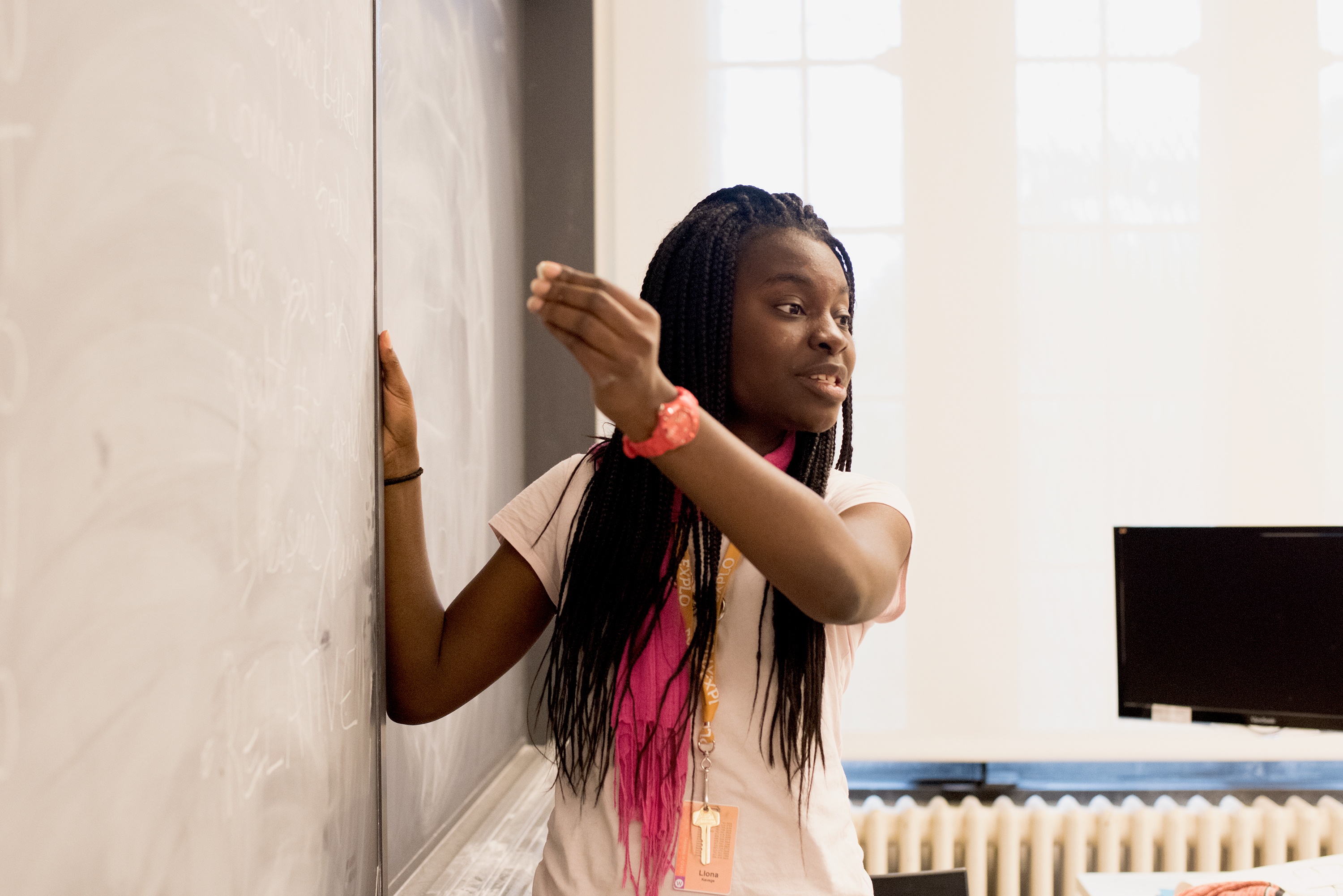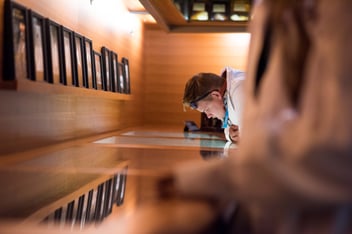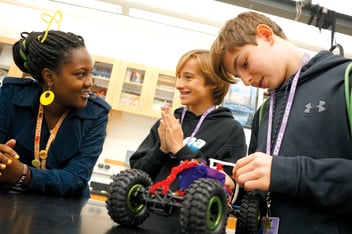Greater Minds at EXPLO: Llona Kavege

Llona Kavege is a dynamo. A biology and philosophy double major with her sights set on a career in biomedical ethics, she teaches Medical Careers and Philosophy and Ethics at EXPLO at Wellesley. She’s also the resident anime expert, an Intercollegiate Ethics Bowl national finalist, and according to her students, “one of the highest minds at EXPLO.” In fact, her students loved her Philosophy and Ethics workshop so much, they successfully petitioned for an additional section of the workshop.
We sat down with Llona to talk about her path to EXPLO, the characteristics of a great teacher, and why philosophy remains relevant for students today.
Global Perspectives are Personal Growth
I was born in Long Island, N.Y., but I grew up in Togo, West Africa. My mother worked for the United Nations Human Development Program, and so we traveled a lot. Uganda, Dubai, France, countries throughout West Africa. I went to international schools all of my life and so I got to meet people from all around the world. That experience helped me understand that one’s own outlook on life is not the only one, and that we are influenced by our surroundings and environment. It builds one as a person and this can change throughout your life.
The experience [of meeting people from all over the world] helped me understand that one’s own outlook on life is not the only one, and that we are influenced by our surroundings and environment.
At EXPLO there is lots of diversity in terms of the representation of different nations and regions around the world, and I feel that our students definitely grow being part of such an open and diverse environment. But I also think it’s important to extend that into the ways we teach and how we set up our classrooms. When I teach my workshop I let my students know that this is a very open environment and that they’re free to say what they want. The one thing people don’t like is being challenged in terms of their beliefs. But I think challenging our beliefs is the best way to grow, because change is part of growth.
What Makes a Great Teacher
What makes a good teacher is the same as what makes a good person. Because, in a way, I think we’re all teachers. Learning is part of life, and education is a lifelong journey. And that’s outside of formal education! We learn every single day, whether we are conscious of it or not.
Integrity is extremely important. And within integrity resides honesty, patience, the ability to discern, to accept our mistakes and our strengths, and being able to improve and build from them.
Integrity is extremely important. And within integrity resides honesty, patience, the ability to discern, to accept our mistakes and our strengths, and being able to improve and build from them.
A Teaching Philosophy About Students
It’s all about the students. If one just sticks to their syllabus without realizing the strengths and weaknesses of their students, some may leave the class very enriched but some of them might not have gotten the full experience. You have to adapt. This allows me to make sure that I cater enough to all of the students. And I tell them, ‘I’m not going to answer all of your questions in just five days, but at least I know that I’ve left you with all the tools to find the answers for yourselves.’ I can’t build their houses for them, but I can show them how. And I think that’s very important.
Teaching it Forward
I’ve always enjoyed teaching, and I’ve pretty much either been mentoring, assistant teaching, or tutoring since I was in high school. I think that I just naturally enjoy helping people, and I’m sure that came from my grandparents and my mother, who have always been benevolent towards people. Also, having grown up in West Africa, it’s very different from the United States. The United States is a very individualistic society, no matter how you look at it. I grew up in a very communitarian society.
It takes a village to raise one person, and so I think, in several ways, that helping one person is helping yourself. And I believe that knowledge is definitely power, and being able to share that knowledge — not just for someone to learn, but to understand and to empower them to take it further, to take it on for themselves and then hopefully pass along to someone else — is a beautiful process to be part of. Seeing someone apply what you have taught them and then take it one step beyond is really what makes teaching worthwhile for me.
. . . being able to share knowledge — not just for someone to learn, but to understand and to empower them to take it further . . . is a beautiful process to be part of.
The Case for Philosophy and Ethics
People think of philosophy the way they think of Latin: it’s dead. But philosophy can never die because it applies to so much of our lives, and many people use philosophy even if they don’t use the formal name for it.
Our laws are not keeping up with technology, and so it’s definitely important that someone takes a step back and looks at the fact that just because we can do something means that we should. In some cases, some things are better left undone for the sake of the common good.
The Persistence of Humanity
Helping each other is so critical. In my Medical Careers course I tell them that they are an EXPLO hospital, that they’re all in the EXPLO school of medicine, and that their goal is to graduate by week three. But in order for one of them to graduate, they all have to graduate. So it’s not about competition, but about solidarity, collaboration, and cooperation. As I tell my philosophy students: the human race hasn’t survived because we’re the fastest, the strongest, or the smartest; we have survived because we have worked together. Asking for help is totally fine, and actually very necessary for the survival of our species as a whole.



